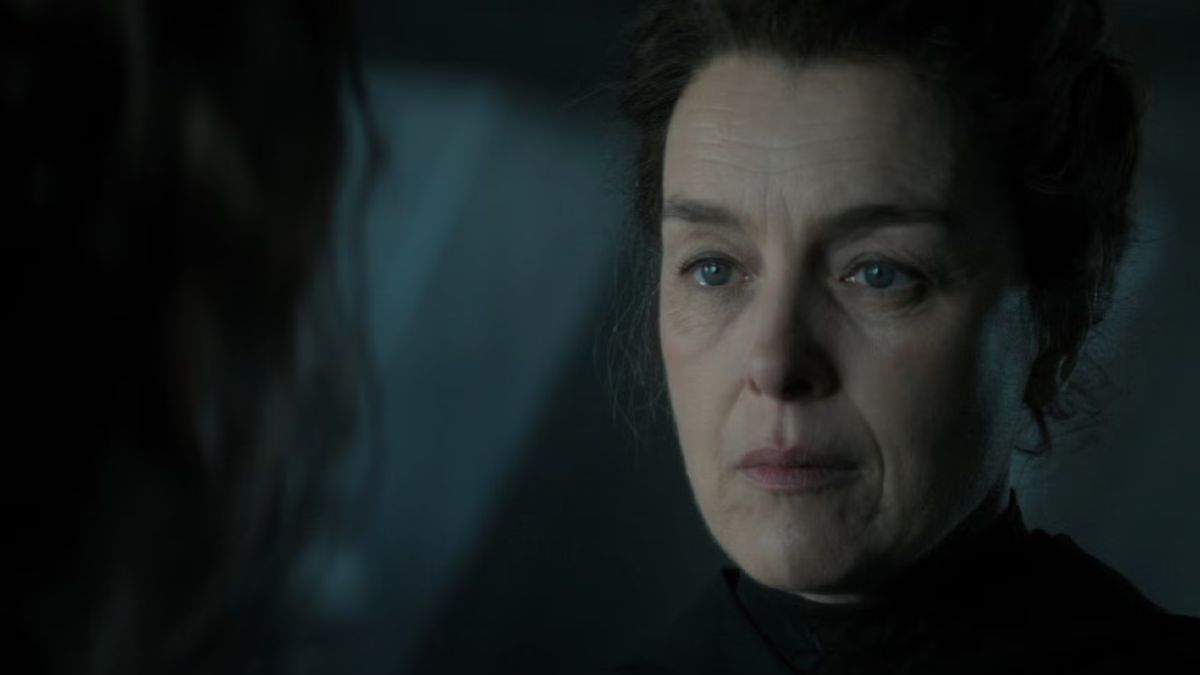
Olivia Williams, known for her roles in ‘Dune: Prophecy’ and ‘The Crown’, recently opened up about her ongoing battle with metastatic pancreatic cancer. The condition is also known as stage IV pancreatic cancer. After years of being misdiagnosed with other illnesses, Olivia finally received the correct diagnosis, but by then, the cancer had already spread to other parts of her body. Because of this, she revealed that she will never be completely cancer-free. Her story highlights the challenges many face with pancreatic cancer, a disease that is often detected too late, making treatment difficult. Olivia’s experience brings attention to the importance of early diagnosis and raises awareness about this aggressive form of cancer.
Table of Content:-
“I Cannot Now Ever Be”: Olivia Williams On Cancer-Free![dune olivia williams cancer dune olivia williams cancer]()
Olivia’s journey began with vague symptoms such as fatigue, chronic diarrhoea, and limb aches. Over four years, she consulted about ten doctors across three countries, but none found the real cause. Some even questioned her mental health, with one doctor referring her for a psychiatric assessment. Finally, a CT scan and biopsy revealed a 7 cm tumour in her pancreas, which had already spread to her liver and other organs.
Reflecting on this, Olivia told an outlet, “If someone had f***ing well diagnosed me in the four years I’d been saying I was ill… then one operation possibly could have cleared the whole thing and I could describe myself as cancer-free, which I cannot now ever be.”
ALSO READ: Meghan Markle Reveals How She Coped with 2020 Miscarriage: “You Have To Learn To Detach”
What Is Metastatic Pancreatic Cancer?![Metastatic Pancreatic Cancer 1 - 2025-04-21T111424.275]()
Pancreatic cancer is one of the deadliest cancers, partly because it often shows no clear symptoms until it has spread (metastasised) to other parts of the body. It usually happens at stage 4, as metastatic pancreatic cancer means the cancer cells have moved beyond the pancreas, making it much harder to treat or cure.
Dr Krishna Kiran Kannepalli, Surgical Oncologist and Advanced Laparoscopic and Robotic Surgeon, American Oncology Institute (AOI), Hyderabad, explains why pancreatic cancer is so hard to catch early and what this means for patients. He says that the pancreas is deep inside the abdomen, so doctors can’t feel lumps or tumours during a normal check-up. In the early stages, pancreatic cancer usually doesn’t cause clear symptoms. If there are any signs, they are often mild, like nausea, weight loss, or stomach discomfort, which can be mistaken for common stomach problems.
Another challenge is that blood tests often don’t show any clear signs of pancreatic cancer in the beginning. Because of all these reasons, most people are diagnosed only when the cancer has already spread, making treatment much harder and survival chances lower.
A study published in The Lancet Oncology highlights that pancreatic cancer has a five-year survival rate of less than 10%, largely due to late diagnosis. The average time from diagnosis to death is about three to six months, emphasising the urgent need for earlier detection methods.
Raising Awareness for Early Detection![Pancreatic cancer 2 - 2025-04-21T111421.255]()
Olivia is now a vocal advocate for pancreatic cancer awareness and early testing. She supports Pancreatic Cancer UK and is involved with the London Marathon’s charity efforts to raise funds for research. She stresses the importance of a simple, affordable early test, saying, “This is where I get emotional, but I’m not looking for sympathy, I’m looking for a cheap, early test.” Early detection could save many lives, as pancreatic cancer often requires multiple doctor visits.
Living With Metastatic Cancer
Though Olivia will never be cancer-free, she chooses to live with hope and purpose. She maintains a busy schedule, practices hot yoga, and cherishes time with her two daughters. Her story sheds light on the harsh realities of pancreatic cancer but also inspires others to push for better healthcare and early diagnosis. Her story is a powerful reminder of how critical early diagnosis is in battling pancreatic cancer.
Also watch this video
How we keep this article up to date:
We work with experts and keep a close eye on the latest in health and wellness. Whenever there is a new research or helpful information, we update our articles with accurate and useful advice.
Current Version



